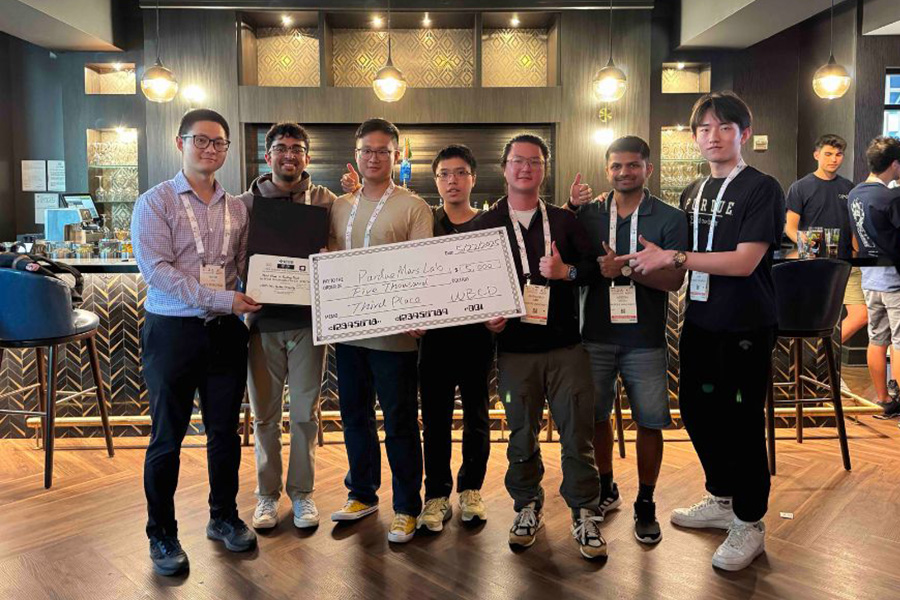Purdue Engineering's Team MARS earns third place at prestigious robotics competition
Purdue Engineering's Team MARS earns third place at prestigious robotics competition

Purdue University’s student Team MARS (Mechanisms and Robotic Systems) achieved an impressive third place finish and a $5,000 prize at the What Bimanual Teleoperation and Learning from Demonstration Can Do (WBCD) competition, hosted during the 2025 IEEE International Conference on Robotics and Automation (ICRA) — widely regarded as one of the world’s leading robotics conferences. Seungho Han, an undergraduate in the Elmore Family School of Electrical and Computer Engineering, was a member of the team.
In their first-ever appearance at ICRA, the MARS Team — representing Purdue’s Institute for Control, Optimization and Networks (ICON) — stood out among elite international competitors, including teams from Carnegie Mellon University, UC Berkeley, Georgia Tech and others. The team is supervised by Yu She, assistant professor in the Edwardson School of Industrial Engineering.
Led by Robotics graduate students Pengyuan Guo and Renhong Zhang, the team tackled the WBCD Logistic Track Task, which required a dual-arm robot to efficiently transfer and organize diverse items — ranging from soda cans to poker cards — across 10 dynamic packing scenarios. Each round tested the robot’s ability to adapt to variations in shape, size and weight of items.
“This competition aligned directly with our thesis work in robotic logistics,” said Guo. “We focused on creating a bimanual system capable of real-world packing tasks through efficient teleoperation and learning from demonstration.”
Key technical highlights of the team’s approach included:
- Multimodal learning that integrated vision, tactile and proprioceptive data.
- High-fidelity simulation using NVIDIA Isaac Sim and MuJoCo for advanced policy training and data augmentation.
- Sim-to-Real transfer strategies to bridge performance gaps between virtual and physical environments.
- Multi-agent coordination for synchronized manipulation using two robotic arms.
Deputy team leader Renhong Zhang emphasized the importance of robust demonstration data and collaborative effort.
“High-quality demonstration data is essential in teaching robots effectively.,” he said. “We focused on significantly improving our data pipeline and ensuring precise sensory alignment, validating our approach in both simulation and real-world environments.”
The six-member team divided responsibilities across simulation, real-world deployment, teleoperation, sensor fusion and AI-based task recognition — laying the groundwork for a reusable bimanual manipulation framework. Mentoring students’ research skills through international competitions is one important educational component in Purdue’s three new professional M.S. programs in Robotics, Autonomy and IoT.
The WBCD competition provided a fantastic platform for the students to apply cutting-edge research and classroom knowledge to a real-world industrial scenario, She said. “It was an invaluable hands-on experience that challenged them to think critically and work collaboratively. Special appreciation goes to ICON co-directors Shaoshuai Mou and Shreyas Sundaram for their tremendous support throughout this journey.”
This achievement not only showcases the technical capabilities of Purdue’s student-led research teams, but also cements Purdue’s emerging leadership in next-generation robotics innovation.
“We’re incredibly proud of this result,” Guo said. “And even more motivated to take what we’ve learned into future robotics challenges.”
Source: Purdue Engineering's Team MARS earns third place at prestigious robotics competition
